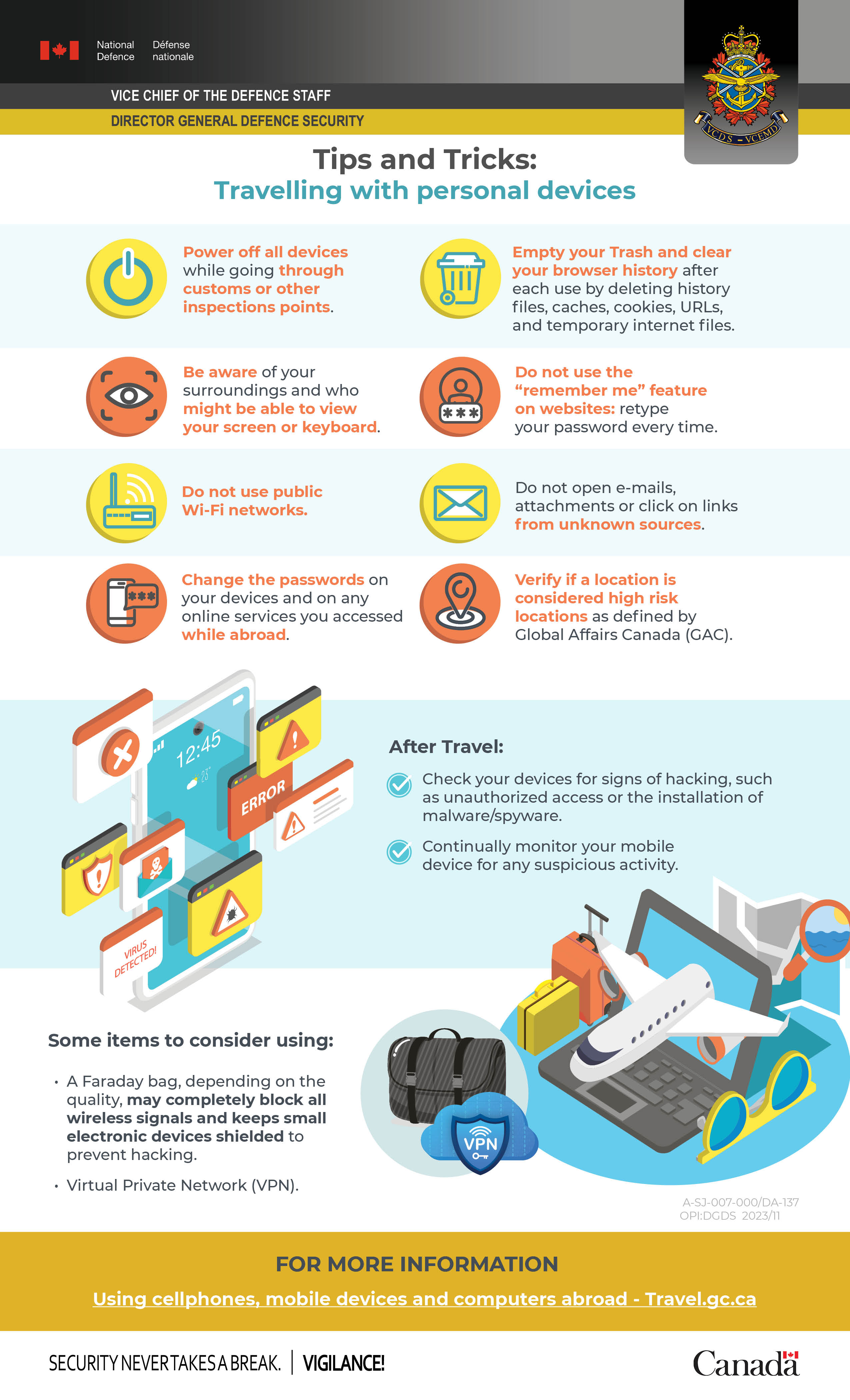Tips and tricks when Travelling with Personal Devices
February 1st, 2024 - Defence Stories

As technology is part of our daily lives, it can be easy to overlook the threats and risks that can be attached to travelling with our devices. Simple things such as customs checkpoints, hotels, as well as large-scale events are all potential hotspots that could put your sensitive personal information at risk.
Before embarking on your next vacation, we highly recommend reading the tips and tricks depicted in the infographic on Travelling with Personal Devices as it contains information that can help aid in reminding us how to protect our information.
Video / February 01, 2024
Transcript
TRAVEL SECURITY TIPS checklist
When it comes to travelling security, vigilance is key.
- Here are some tips to ensure safe travelling.
- Prior to travel, submit a notice of Intent to Travel. You will receive a general and a country specific travel briefing. This will help you in case of an emergency.
- Locate the address and phone number to the nearest embassy in the country you are travelling to.
- Bring important documents: -Emergency contact information and -Health insurance - Proof of immunization
- When you have been in a foreign country for some time, it is natural to let your guard down.
- Don’t draw attention to yourself
- do not advertise your identity as a DND employee or CAF member, you may be a target.
- Do not travel internationally with cannabis. It is illegal in most countries. You could face serious criminal penalties both at home and abroad.
- Before travelling: obtain proper authorization for DND/CAF-issued IT devices.

Infographic – Text version
Tips and Tricks:
Travelling with personal devices
- Power off all devices while going through customs or other inspections points.
- Empty your Trash and clear your browser history after each use by deleting history files, caches, cookies, URLs, and temporary internet files.
- Be aware of your surroundings and who might be able to view your screen or keyboard.
- Do not use the “remember me” feature on websites: retype your password every time.
- Do not use public Wi-Fi networks.
- Do not open e-mails, attachments or click on links from unknown sources.
- Change the passwords on your devices and on any online services you accessed while abroad.
- Verify if a location is considered high risk locations as defined by Global Affairs Canada (GAC).
After Travel:
- Check your devices for signs of hacking, such as unauthorized access or the installation of malware/spyware.
- Continually monitor your mobile device for any suspicious activity.
Some items to consider using:
- A Faraday bag, depending on the quality, may completely block all wireless signals and keeps small electronic devices shielded to prevent hacking.
- Virtual Private Network (VPN).
For more information:
Using cellphones, mobile devices and computers abroad - Travel.gc.ca
For more content from Security Awareness Week, please visit the Security Awareness toolkit page: Security Awareness Toolkit. This link is accessible only on the National Defence network.
